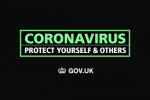
Eight countries will move from the red list on 22 September and the rules for international travel to England will change on 4 October 2021.
The Transport Secretary, Grant Shapps, has announced a simplified system for international travel in light of the success of the UK’s domestic vaccine rollout, providing greater stability for industry and passengers.
The current traffic light system will be replaced by a single red list of countries and territories which will continue to be crucial in order to protect public health, and simplified travel measures for arrivals from the rest of the world from Monday 4 October at 4am.
Testing requirements will also be reduced for eligible fully vaccinated travellers, who will no longer need to take a PDT when travelling to England from Monday 4 October 4am.
From the end of October, eligible fully vaccinated passengers and those with an approved vaccine from a select group of non-red countries will be able to replace their day 2 test with a cheaper lateral flow test, reducing the cost of tests on arrival into England. The government wants to introduce this by the end of October, aiming to have it in place for when people return from half-term breaks.
Anyone testing positive will need to isolate and take a confirmatory PCR test, at no additional cost to the traveller, which would be genomically sequenced to help identify new variants.
Testing for unvaccinated passengers from non-red countries will include pre-departure tests, day 2 and day 8 PCR tests. Test to release remains an option to reduce self-isolation period.
From 4 October, England will welcome fully vaccinated travellers from a host of new countries – who will be treated like returning fully vaccinated UKtravellers – including 17 countries and territories such as Japan and Singapore, following the success of an existing pilot with the US and Europe.
Grant Shapps Transport Secretary said -
Today’s changes mean a simpler, more straightforward system. One with less testing and lower costs, allowing more people to travel, see loved ones or conduct business around the world while providing a boost for the travel industry.
Public health has always been at the heart of our international travel policy and with more than 8 in 10 adults vaccinated in the UK, we are now able to introduce a proportionate updated structure that reflects the new landscape.
Part of the third Global Travel Taskforce checkpoint review, today’s update reiterates the government’s focus on protecting its borders from the most dangerous variants and ensures continuity for industry and passengers the remainder of the year. The government will look to set out a further review for the UK’s international travel policy early in the new year to provide further certainty for the spring and summer 2022 seasons.
Conducting the final regular traffic light review before the switch to the new two-tiered system, several additional countries and territories will move off the red list – Turkey, Pakistan, the Maldives, Egypt, Sri Lanka, Oman, Bangladesh and Kenya. Changes will come into effect at 4am Wednesday 22 September.
Passengers who aren’t recognised as being fully vaccinated with authorised vaccines and certificates under England’s international travel rules, will still have to take a pre-departure test, a day 2 and day 8 PCR test and self-isolate for 10 days upon their return from a non-red list country under the new two-tiered travel programme. Test to Release will remain an option for unvaccinated passengers who wish to shorten their isolation period.
From late October, the government will also be making changes to allow passengers who change flights or international trains during their journey to follow the measures associated to their country of departure, rather than any countries they have transited through as part of their journey.
All passengers will still need to fill in a passenger locator form ahead of travel. Passengers should continue to check GOV.UK travel guidance including FCDO travel advice before, during and after travel to keep up to date in entry requirements and ensure compliance with the latest COVID-19 and non-COVID-19 regulations for the country being visited.


